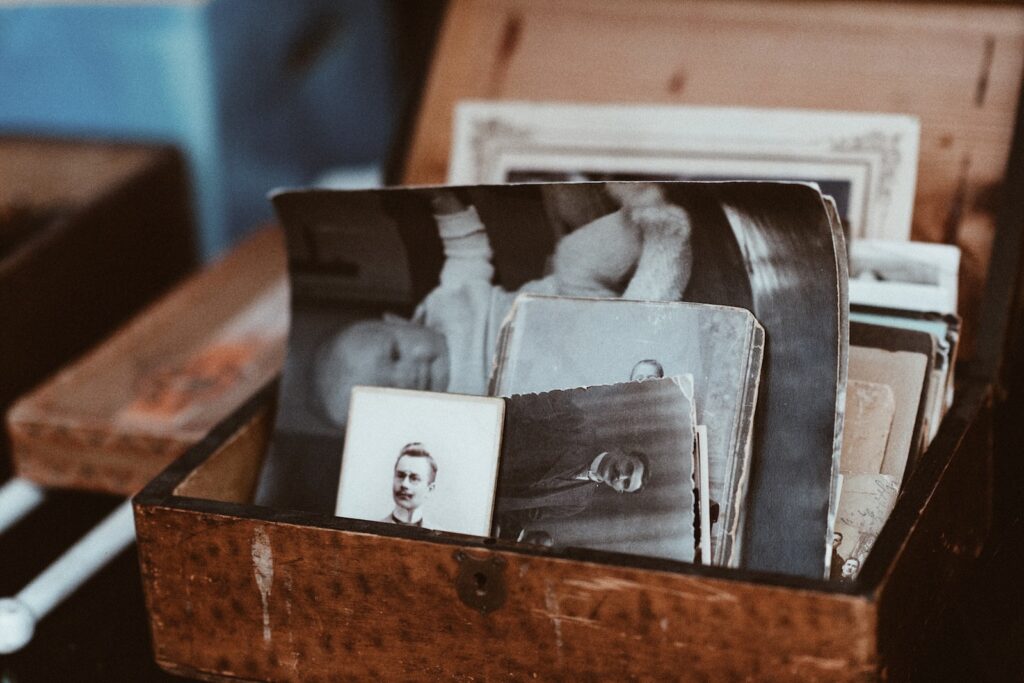
Why Bother Considering Our Heritage?
For the first eight years of my life, I had the privilege of growing up in Nebraska in close proximity to my relatives. I lived in the same town as my maternal grandparents, aunt, uncle and cousins. Although my maternal great grandmother lived in Idaho, she’d sometimes visit her oldest daughter, my grandmother.
Though my great grandmother died before I got to know her, I have a photograph of the two of us. I was a tiny tot standing in front of her examining her soft wrinkly soft hands while she sat on a couch. In the picture, her hair was done up in a neat bun, her posture was perfect, her dress modest and she wore an amused smile on her face.
Frances Meyer was my great grandmother, her oldest daughter, Bernadette, was my grandmother and Darleen, my grandmother’s oldest daughter, was my mother. Remembering these women remind me of where I came from and their subtle, yet unmistakable influence on my life.
A Line of Hard Working Women
I know that Frances instilled in my grandmother the quality of doing a good day’s worth of work. It was necessary. Frances needed help. There were kids to raise, chickens to slaughter, clothes to wash and food to harvest. This was the natural rhythm of life and young Bernadette did not balk at the amount of work, argue with her parents or refuse to do what was expected from her. Instead, she’d “seize the day,” so to speak, and live each day to its fullest.
My grandmother, in turn, taught her daughter what a good day’s worth of work looked like too, but in a different way. Bernadette did not raise her family on a farm. Her daughter, Darleen, did not have to help raise the children, slaughter chickens or hoe the garden. Instead, my mother discovered that a good day’s worth of work included learning academic excellence at a boarding school run by Catholic nuns. Though she felt the constrictions placed on her in this strict environment, Mom did not balk at the amount of work, argue with her parents or refuse to do what was expected of her. Instead, she’d “seize the day,” so to speak, and live each day to its fullest.
Consequently, my mother also taught me the value of doing a good day’s work. By the 1960s, when Mom raised her family, more women worked outside the home than ever before and when Mom became a widow, working became essential. I stepped in as the housekeeper at home and learned to manage a household.
Then I had the privilege and the pleasure of teaching my sons the same things I inherited from the women in my family. With one son on my hip, one toddling under my feet and another one at my elbow, I showed them what a good day’s worth of work looked like. By the time they graduated from high school they all knew how to do their laundry, grocery shop and fix a good meal.
But the influence of these women in my life continues because every day I go to work and teach my students what a good day’s worth of work looks like. Though sometimes they balk at the amount of work, they are learning to “seize the day,” so to speak, and live each day to its fullest.
Why bother considering our heritage? Our past has a way of continuing to influence our lives as well as all the other lives we continue to influence.
New Release
